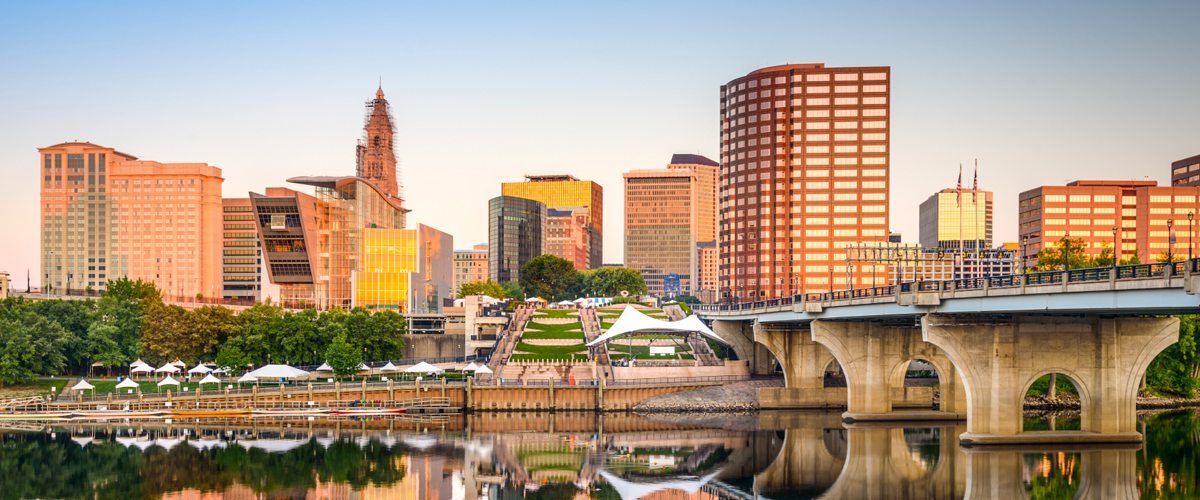[vc_row][vc_column][vc_column_text]
Connecticut’s Office of Fiscal Analysis estimates that legalizing recreational marijuana would allow the state generate more than $30 million in tax revenue in the first year of sales.
Legalizing recreational marijuana in Connecticut would allow the state pull in more than $30 million in tax revenue in its first year of sales, according to projections provided by the legislature’s nonpartisan fiscal office.
Earlier this month, Connecticut’s Office of Fiscal Analysis released a report that estimates that the state would generate $30.1 million if it were to apply Massachusetts’ recreational marijuana model and $63.9 million if it were to follow Colorado’s.
Massachusetts’ marijuana initiative imposes a 3.75 excise tax and a 6.25 percent sales tax on retail sales, while Colorado applies a 15 percent excise tax, 2.9 percent sales tax, plus an additional 10 percent special sales tax on recreational marijuana. Massachusetts won’t begin sales of marijuana until July, but Colorado, which began selling adult use cannabis in 2014, generated over $180 million in tax and fee revenue last year.
Democratic and Republican lawmakers in the House and Senate have already introduced marijuana legalization bills for the current 2017 legislative session. Senate President Martin Looney (D-New Harven) pre-filed legislation that proposes the legalization and taxation of marijuana. State Rep. Melissa Ziobron (R-East Haddam) filed a similar bill that would allow adults aged 21 and older to legally use it.[/vc_column_text][/vc_column][/vc_row][vc_row][vc_column][vc_single_image image=”17394″ img_size=”1200×250″ onclick=”custom_link” img_link_target=”_blank” link=”https://www.medicalmarijuanainc.com/report-u-s-legal-cannabis-market-growing-faster-dot-com-boom/”][/vc_column][/vc_row][vc_row][vc_column][vc_column_text]Eight U.S. states – Colorado, Washington, Oregon, Alaska, California, Nevada, Massachusetts, and Maine – have so far legalized recreational marijuana. While a 2015 Quinnipiac poll found that 63 percent of Connecticut voters are in favor of legalizing adult use marijuana, the efforts toward legalization are facing an uphill battle.
Connecticut Gov. Dannel P. Malloy has said he supports decriminalizing marijuana and legalizing it for medical use, but is opposed to adult use legalization, regardless of the potential tax revenue it would generate.
“First of all, I think it’s a mistake what Massachusetts has done and other states have done,” Malloy said in December, according to the Hartford Courant. “I think we should hit the pause button and watch how it works in the region. … I think it’s a mistake.”
Connecticut law enforcement officials have also voiced concern about the proposed legalization. Connecticut Police Chiefs Association President John Salvatore recently told the New Haven Register that while he recognizes the revenue benefit of ending prohibition, law enforcement is concerned about enforcing against driving under the influence.
“There’s no way for us to prove that a person was under the influence of marijuana when they’re pulled over, and if it’s legal, then the question is well, how do we prove that in court?” Salvatore said.
While it’s true large doses of marijuana can affect psychomotor performance and perception, studies have shown that DUI’s and traffic fatalities decrease in states with marijuana legalization laws.
The report from the Office of Fiscal Analysis also found that the first full year of running and regulating the marijuana program would cost Connecticut $4.2 million if the state were to follow Massachusetts model and $9 million if it were to implement a model similar to Colorado’s.
Keep up with the growing legal cannabis industry by regularly visiting our news feed.[/vc_column_text][/vc_column][/vc_row]






